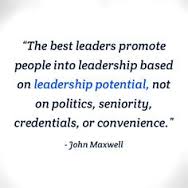
This year was the third Martin Luther King Day weekend in a row I have spent in Myrtle Beach, SC. My purpose in going to Myrtle Beach was to attend a three day conference which highlighted most of the political issues our country is facing. Click here to review all the speakers, as you may be interested in studying some of the subject matter. Video of the conference is available on the internet, in the event you would like to watch any of the speakers.
This year, I also used this time to “Sharpen the Saw,” which is the 7th Principle of Stephen R. Covey’s book The Seven Habits of Highly Effective People. I purchased the 3 CD audio version of Stephen’s book, and listened to it twice during the course of the weekend – then when I returned home, I reviewed my printed copy of the book, which I had read some 15 years ago. I also perused one of Stephen Covey’s other best sellers, First Things First.
Every year at this conference I am inspired by the hundreds of individuals who, due to concern for their communities, their state and their country, are investing their time, talent and treasure to not only educate themselves on some of the issues we face – but also to do something they never intended to do – become leaders themselves within the civic arena to improve the areas of concern which is most important to them!
I have written about these inspirational folks numerous times before, including when I referred to them in The Next Greatest Generation! I write about them because they inspire me. They give me hope.
In my humble opinion, it isn’t the professionals at the front of the room who will steer the ship of state, in my opinion – it is the “newly engaged leaders” – who are consistently honing their knowledge and skills to become more effective leaders.
It is in that vein that I hope to encourage some of these folks – as well as some of those who are already well known enough to have the privilege to speak from the front of the room, to take time in the course of the next couple weeks to read, re-read (or listen to) Stephen R. Covey’s book, The 7 Habits of Highly Effective People.
Leadership is what is required. And while new leadership is what we need, it needs to be grounded on the right principles – the PRINCIPLES of true leadership never change.
All of us need to recognize we are on our own individual leadership journey, which we must daily work on if we truly want to make a difference in the issues which are important to us.
One of the things I appreciate about Covey is that in the process of writing the book, he reviewed over 200 years of popular writing on the principles of success and leadership. He discusses the fact that effectiveness with ourselves and others is based upon our individual character, not upon quick fix formulas or manipulative techniques.
Covey writes that “during the first 150 years, almost the entire focus of the popular success literature was based on character, that is on principles, what we might call the Character Ethic, attributes such as Integrity, Fidelity, Courage, Compassion, Contribution, Responsibility, Justice, Service – and then because of many, many societal forces as well as moving from the agriculture into the industrial age – the emphasis gradually shifted in the early 1900’s, particularly in the 20’s and 30’s away from the character ethic to what we might call the Personality Ethic, which focuses more on techniques and technologies than on principles. On how to appear to be, rather than on how to truly be.
Now that we have moved through the industrial age, and into the more advanced information age, this very trend has accelerated, and yet because of the powerful changes that are taking place in the global market place and with the new technologies – there is a pronounced new shift back to the Character Ethic. Simply for the purposes of pragmatic survival, to maintain competitive viability, I have never seen a closer relationship between pragmatics and ethics. That is one of the reasons why there is such an enormous and increasing interest in this material on the 7 habits, all surrounding those principles which are central to the character ethic” (p. 18-19).
The Seven Habits of Highly Successful People is divided into Four Parts:
- Paradigms and Principles
- Private Victory
- Public Victory
- Renewal
In part one, Paradigms and Principles, Covey writes at length about the paradigms of the Character Ethic and the Personality Ethic. He doesn’t downplay the importance of personality – but articulates that effectiveness / influence is greatest when we start from “the inside out.” In other words – our public victories will be more significant in the long run, if our private victories have laid a rock solid foundation.
In part two, Private Victory, there are three habits:
- Be Proactive
- Start with the End in Mind
- Put First Things First
In a nutshell – Part 1 states in order to successfully lead, you need to have your own house in order. Covey writes “Private victories precede public victories. You can’t invert that process any more than you can harvest a crop before you plant it. It’s inside out” (p. 51). The focus is not on impacting society or leading others – but the focus is on the individual who ultimately feels called to lead others and impact society at large. If a solid foundation of character is made in the individual’s private life, the effectiveness in his or her public life will be exponentially more significant and longer lasting.
In part three, Public Victory, there are three habits:
- Think Win/Win
- Seek First to Understand, Then to be Understood
- Synergize
Thinking on this section of the book, as it relates to the context of last weekend, the conference in Myrtle Beach where virtually every subject under the sun that is impacting our country today was discussed, this section is extremely relevant. There are so many issues facing our country, too many to list, that it can seem overwhelming. Some refer to this time period of rapid change as Fundamental Transformation or Overwhelming the System!
Often when we are passionate about a particular issue, we view it through our prism as being the most important issue – and we want everyone to understand why and agree with us that it is indeed the most important thing. Our focus is to be heard, to enlist more individuals into our subject matter.
Well, from our perspective that is true – but from the perspective of someone else, that may not be true; therefore in order to be effective, we need to think win/win, seek first to understand, then to be understood and synergize with other like-minded folks who have similar character traits, but different primary issues. For many this is a challenge, because it requires an investment of time – to build critical relationships so that ultimately, together, we will be able to “synergize.”
Prior to 9/11/01 I worked for a great entrepreneur, who I consider a mentor. He had achieved great success in his career, and something he repeatedly said during my time observing him in business – “Scott, God gave us two ears and one mouth. He wants us to spend twice as much time listening as he does speaking.” In a world where we as activists see the world coming unhinged, this is a hard lesson to learn – but I believe it is critical if we are to be effective in whatever issue we feel called to work on.
Part four deals with renewal and includes the final habit, “Sharpen the Saw.” Our lives require balance, and we need to put processes in place which will prohibit us from losing balance and proper perspective. In every walk of life: politics, business, sports and the faith based community, we have vivid examples of leaders who fail to do this, and have tragic “falls from grace,” where the work they spent a lifetime constructing is negated or becomes tarnished because they failed to put these processes in place. May we structure our lives in such a way that we never lose sight of this final, critically important law.
In closing – I would encourage all of my friends to invest time in reading or listening to the book “The 7 Habits of Highly Effective People.” I believe it will help us “raise our game” to the next level.
I have great hope for the future – because so many are committed to the principles of character. We are calling for it in our leaders – but we are striving to live it on our own lives as well.
Click here for the audio version of the 7 Habits of Highly Effective People.
Click here to order from Amazon.com
Click here for an effective video I found which outlines the book.
Click here to follow Scott on Twitter
Click here to follow Scott on Facebook





















Recent Comments